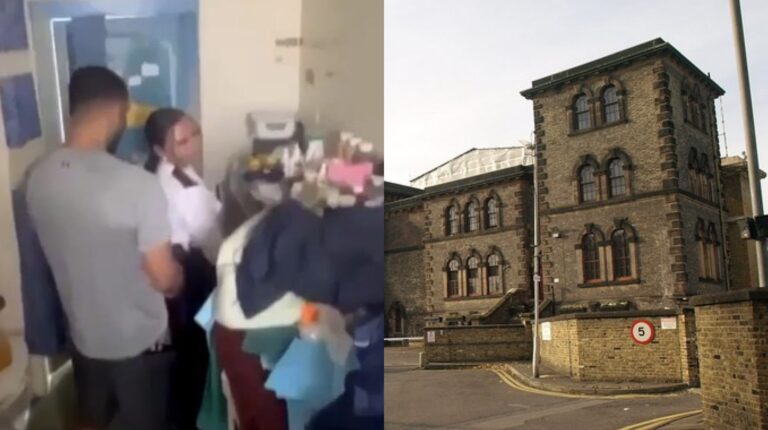What Happened to Ronnie McNutt? A Life Cut Short and the Need for Change
His death has also highlighted the need for greater responsibility from social media platforms to prevent the spread of graphic violent content and to protect users’ reputations online.

Ronnie McNutt, a 33-year-old American man and US Army Reserve veteran, tragically took his own life on August 31, 2020, by shooting himself under his chin during a Facebook livestream. The shocking event went viral on various social media platforms, sparking widespread outrage and raising concerns about the duty of care social media platforms owe to users and victims’ reputations online.
McNutt’s story is a heartbreaking reminder of the devastating impact of mental health issues and the importance of providing support and resources to those in need. His death has also highlighted the need for greater responsibility from social media platforms to prevent the spread of graphic violent content and to protect users’ reputations online.
Life and Career
McNutt was born on May 23, 1987, in New Albany, Mississippi. He served in the United States Army Reserve, including a tour in Iraq, where he developed post-traumatic stress disorder (PTSD). McNutt worked at a Toyota plant and was a devout Christian who regularly attended church. He had a history of mental health issues, including depression, and was dealing with a recent break-up with his girlfriend.
Despite these challenges, McNutt was known for his enthusiasm and positivity, often sharing his life through social media livestreams. His friends and family described him as a kind, caring, and loyal individual who was always there for those he loved. McNutt’s military service and the trauma he experienced during his deployment had a profound impact on his mental health, and he struggled to find the support and resources he needed to cope with the aftermath of his experiences.
The Fateful Night
On August 31, 2020, McNutt began a Facebook livestream, which was noticed by his best friend, Joshua Steen. Initially, Steen did not find the stream unusual, but he became alarmed when he realized McNutt was intoxicated and holding a bolt-action rifle. Steen attempted to intervene multiple times, hoping Facebook would cut off the stream, but the platform refused, citing that McNutt had not yet committed suicide.
As the stream continued, McNutt’s phone rang frequently, including a call from his ex-girlfriend, which led to a brief argument. The tension and distress in McNutt’s voice were palpable, and those watching the stream could sense that something was terribly wrong. Despite the efforts of his friends and loved ones to reach out and provide support, McNutt was in a dark place, consumed by his inner demons and the pain he was experiencing.
The Tragic Conclusion
In his final moments, McNutt addressed the audience, saying, “Hey guys, I guess that’s it.” He then aimed the rifle under his chin and fatally shot himself. The stream was captured by multiple viewers, and the New Albany Police Department was called to the scene during the livestream but did not enter McNutt’s apartment until after he died.
McNutt’s family has since faced online harassment and fake fundraisers, while his friends and acquaintances are left grappling with the aftermath of his tragic death. The loss of Ronnie McNutt has left a profound void in the lives of those who knew and loved him, and the manner of his death has only compounded the grief and trauma experienced by his loved ones.
The Viral Spread
The video of McNutt’s suicide was downloaded and posted online, spreading rapidly across social media platforms such as Facebook, YouTube, and TikTok. The spread of the video was fueled by a false narrative created by users, which further exacerbated the trauma and distress caused by the event. The video’s virality has raised concerns about the responsibility of social media platforms to prevent the spread of graphic violent content and the duty of care they owe to users and victims’ reputations online.
The continued circulation of the video has caused immense pain and suffering for McNutt’s family and friends, who have had to relive the trauma of his death over and over again. The incident has highlighted the need for greater regulation and oversight of social media platforms to ensure that they prioritize the well-being and safety of their users.
The Aftermath
In the aftermath of McNutt’s death, his friends and family have spoken out about the need for greater action from social media platforms to prevent such tragedies from occurring in the future. Josh Steen, McNutt’s best friend, has advocated for answers from Facebook and other platforms, highlighting the platform’s slow response to the livestream and the continued circulation of the video. The incident has also raised awareness about suicide prevention and the importance of mental health support.
McNutt’s story has resonated with people around the world, who have shared their own experiences with mental health issues and the challenges of seeking help. The outpouring of support and solidarity has been a testament to the power of community and the importance of breaking the stigma surrounding mental health.
Conclusion
McNutt’s tragic story serves as a stark reminder of the devastating impact of suicide and the importance of mental health support. His death has also highlighted the need for greater responsibility from social media platforms to prevent the spread of graphic violent content and to protect users’ reputations online. As we move forward, it is crucial that we prioritize the well-being of those affected by such tragedies and work towards creating a more compassionate and supportive online environment.
McNutt’s story has inspired many to speak out about their own struggles with mental health and to advocate for greater resources and support for those in need. By coming together as a community and prioritizing mental health, we can honor McNutt’s memory and work towards preventing such tragedies from occurring in the future.




